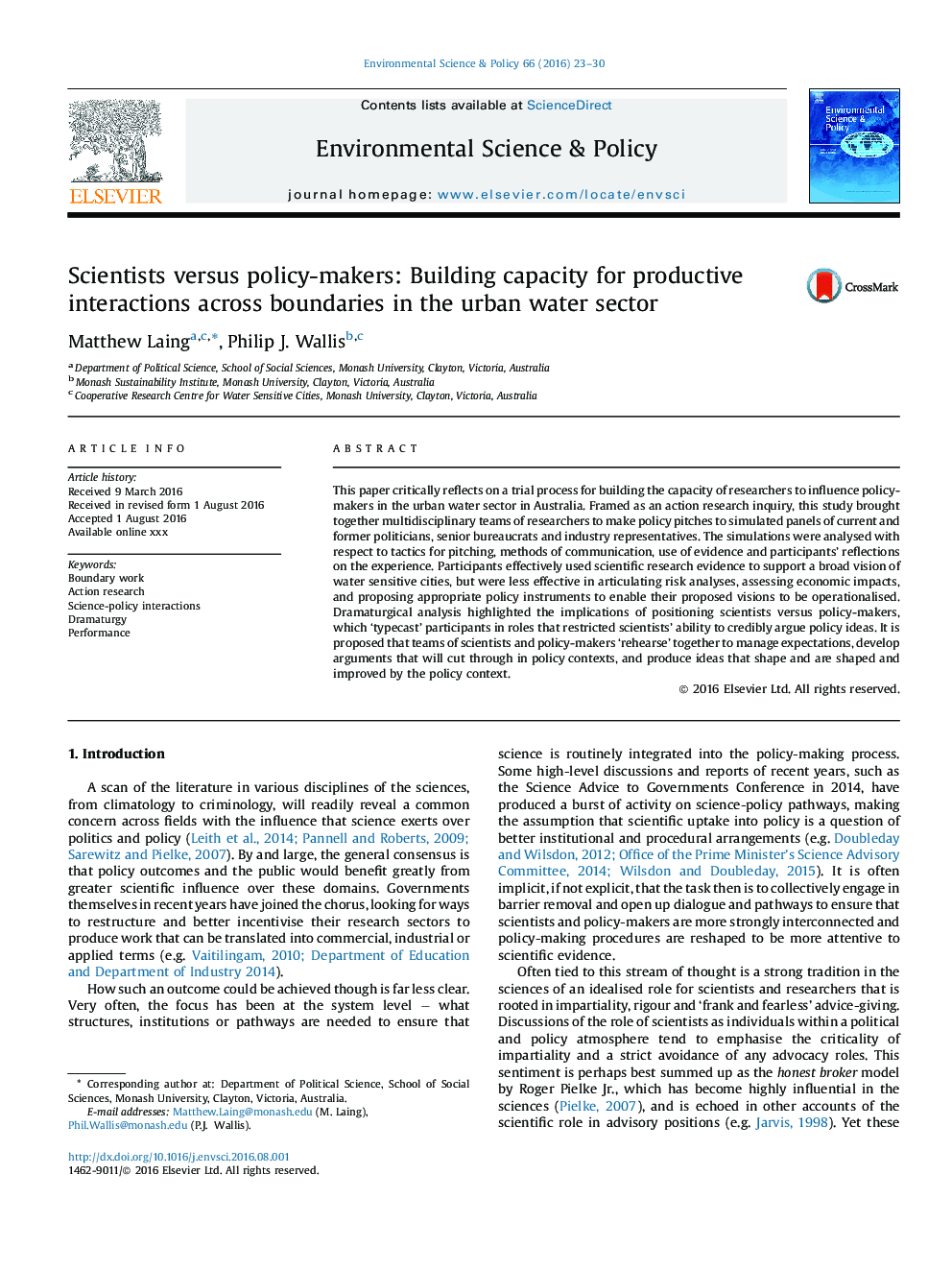| Article ID | Journal | Published Year | Pages | File Type |
|---|---|---|---|---|
| 1053402 | Environmental Science & Policy | 2016 | 8 Pages |
•Scientists lacked critical skills in converting research into useable policy ideas.•Scientists and policy-makers make very different assumptions about policy evidence.•Scientists were ineffective in how they interacted with policy-makers.•Capacity-building shows great promise, but also reveals severe limitations.
This paper critically reflects on a trial process for building the capacity of researchers to influence policy-makers in the urban water sector in Australia. Framed as an action research inquiry, this study brought together multidisciplinary teams of researchers to make policy pitches to simulated panels of current and former politicians, senior bureaucrats and industry representatives. The simulations were analysed with respect to tactics for pitching, methods of communication, use of evidence and participants’ reflections on the experience. Participants effectively used scientific research evidence to support a broad vision of water sensitive cities, but were less effective in articulating risk analyses, assessing economic impacts, and proposing appropriate policy instruments to enable their proposed visions to be operationalised. Dramaturgical analysis highlighted the implications of positioning scientists versus policy-makers, which ‘typecast’ participants in roles that restricted scientists’ ability to credibly argue policy ideas. It is proposed that teams of scientists and policy-makers ‘rehearse’ together to manage expectations, develop arguments that will cut through in policy contexts, and produce ideas that shape and are shaped and improved by the policy context.
